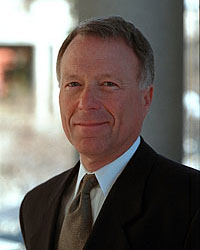On February 9, 2007 the University of Virginia [http://www.virginia.edu/uvatoday/newsRelease.php?id=1469http://www.virginia.edu/uvatoday/newsRelease.php?id=1469# announced] its acceptance of a $25 million gift from cigarette maker Philip Morris to support biomedical research and "business leadership." In its press release, UV said the gift created a partnership between PM and UV "in a number of key areas in which they share a common interest." A medical school finding common interest with Philip Morris is somewhat of a stretch. It strikes me as a conflict of interest for a medical school to profit from a product that [http://www.hhs.gov/news/press/2004pres/20040527a.html kills 440,000 Americans annually]. Moreover, tesearch on tobacco industry documents published in [http://www.news-medical.net/?id=5839 October 2004 in the medical journal Academic Medicine] shows that funding research, and particularly biomedical research, is how the tobacco industry buys legitimacy. Author Nathaniel Wander said that he found "PM wanted to be seen to contribute to medical research to counter the image of harm caused by its cigarettes." The exposure of Philip Morris' internal PR strategies notwithstanding, UV glowed over its new-found partnership with a tobacco company found [http://www.sourcewatch.org/index.php?title=The_U.S._Government%27s_racketeering_case_against_Big_Tobacco guilty in federal District Court last August] of participating in a massive 50-year scheme to lie, conspire and defraud the public about the dangers of smoking. Maybe UV hasn't read its medical journals. Academicians have known for some time about the [http://jech.bmj.com/cgi/reprint/53/5/261.pdf covert influence of the tobacco industry on research]. It is also well established that making grants to carry out external biomedical research been long the centerpiece of the tobacco industry's decades-long propaganda campaign to keep the public confused about the health hazards of smoking and, more recently, the hazardous effects of secondhand smoke on nonsmokers.

 One of the most interesting things about the perjury trial of former White House aide
One of the most interesting things about the perjury trial of former White House aide